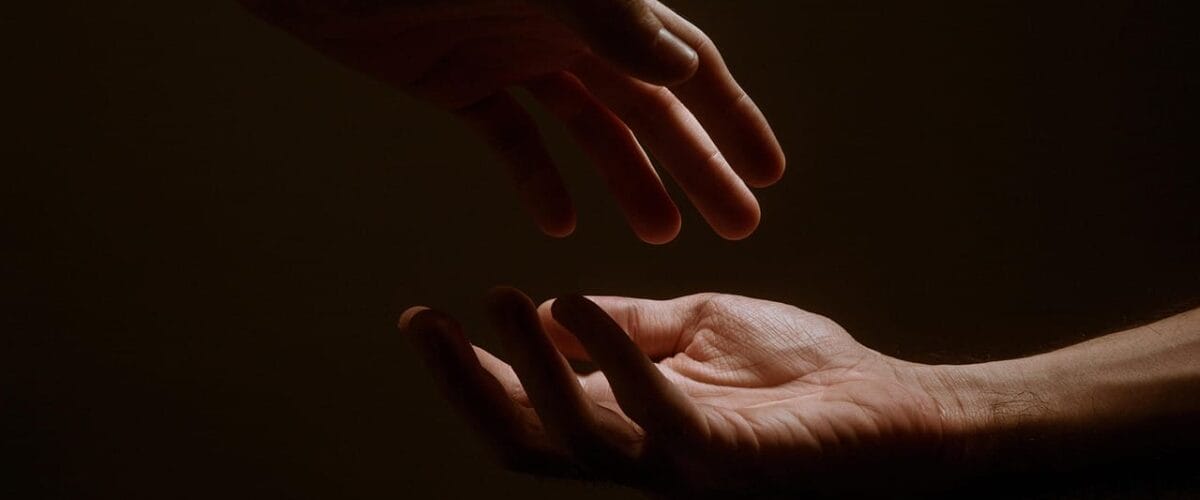The spinning plate act: a performer takes saucers, mounts them on a spindle, gives them a brisk turn and the centripetal force keeps them “magically” balanced. We manage the same thing every day in the suburbs–kids in Tae Kwon Do, ballet, soccer, and swimming, a house undergoing repair, a family vacation in the works, pet care, body image maintenance at the gym. All at the same time.
But something usually happens to upset the delicate balance of your plates. You fail to keep up the fine-tuned balancing act, and it ends up shattered on the floor.
You fret over the ensuing mess. Curse the circumstances. If you’re a Christian, and the implosion is bad enough, maybe you’ll fast and pray for God to fix it.
But as it turns out, these crisis moments are often the very way Jesus advances us into His kingdom. Strange that these setbacks can actually be set-forwards. Paul pointed out in Acts 14, “We must through many tribulations enter the kingdom of God.”
You see, crises often call for repentance (Gk., metanoia, which means a change of mind).
Consider a major moment when Mark records John the Baptist being arrested. That had been a crisis situation, not just for him, but for his followers, and even, it would seem, for God Himself. It looked like the divine agenda on this Earth had been arrested. But on the heels of the event– “after John was arrested” (Mk. 1:14)—“Jesus came.” The Son of God Himself appeared, filling the uncertain void of the occasion, “proclaiming the gospel of God, and saying, ‘the time is fulfilled’” (Mk. 1:15).
Jesus assessed the time as being perfect, the fullest, most pregnant-with-potential moment. Today’s disappointed evangelical might well have replied, “Your timing is awful. You should have kept John from being arrested, not show up afterward!” And yet it is our timing that is poor. While trying to retain control, avoid suffering, and calculate the greatest personal gain, we always miss the greatest opportunities.
Jesus quantifies what that fabulous opportunity was: “The kingdom of God is at hand.” In the wake of John’s imprisonment, the gospel had brought the kingdom a mere arm’s length away.
What then, were the people to do at this perfect time? Jesus said for them to repent, to turn, to change their mind. Over the years they had drifted until they were oriented in the direction of the religious culture, events, practices, and numb routines of Judaism, and were no longer turned to God, and His kingdom.
It’s hard to arrive at the right place when you’re pointed in the wrong direction.
And this isn’t only true of those Jews. In the Book of Revelation, there’s a drumbeat message of “Repent, repent, repent,” to members of churches. The Christian life is more than a single turn to God. It’s a regular process of adjustment, enabling us to enter more deeply into the kingdom.
My immediate reaction to crisis moments is one of reluctance and resistance. I want to keep things the way they are, and I want to keep being the way I am. For instance, I remember the first time I seriously disliked another believer in the church. I’d been coasting for years on my casual, easy-going, friendly, funny style in order to get along with people, and never had to pray about experiencing friction with anyone.
Until I met that guy.
That’s when one of my plates started to wobble.
I did my best to keep up appearances. Surely I could pretend to like the man a few hours a week. People do it all the time at work. Better yet, maybe I could change churches—a popular option Christians use to escape things they don’t like. Besides, since I was in ministry, it would look like a transfer. In the end, I chose the worst possible thing to do, which was to secretly vent my frustration about the brother to others.
Apparently, God made sure my remarks leaked and spread.
Imagine the explosive sound of plates crashing.
Now there was a problem among a handful of us, due in no small part to my attitude. It was a new low for me, but all wasn’t lost. Far from it. The kingdom of God was at hand, and I could still repent, though at a higher cost to me than back when it was solely a private matter. I confessed my sin to Christ—my jealousy, smallness, and self-centeredness, and prayed for the grace to enter more deeply into what Jesus meant when He said, “Love one another” and what Paul meant when he said, “Bear with one another.”
As much as I could, I also tried making it right with the affected parties.
That was a major breakthrough for me. I felt like an insect shedding its exoskeleton, and I couldn’t have hoped to grow otherwise. For so long, my method of getting along with people through simple avoidance, the distraction of humor, and church politics, had been void of the cross and the Holy Spirit.
Situations like this one were never meant to be mastered, much less, ignored. They’re actually an invitation into the kingdom through repentance and belief.
Among us, there are a lot of invitations yet unanswered. They’re waiting inside the context of marriages, kids, romantic relationships, church relationships, money, jobs, material items, and private thoughts and attitudes. There’s a ton of potential kingdom progress existing among us as of this moment, most of which is still waiting for a response. Take account of that.
But don’t think it necessarily means a mound of shattered china at your feet—a major external upset of some sort.
During the first month after being saved, I wondered what the rest of my Christian life would look like. I had a lot of ideas (mostly weird). Then I began reading the book of Acts and experienced the light of God coming through its plain words and thoughts. It was a gentle correction that involved neither car crashes nor bankruptcy. Instead, it called for a repentance of concept. The Scriptures showed me God’s work was about sharing the gospel with others, discipling and being discipled, living by the Spirit in a normal church setting. “Learn to love what I love, and seek what I seek,” God seemed to be telling me. Some forty years later, my life has been changed in incalculable ways from that small, beginning crisis experience of Word and light.
Whether repentance calls for doing or not doing something, thinking or not thinking something, it always beckons us into deeper kingdom life.
This is God’s heart for you.
Think of the times you were in a church meeting or some other gathering where the Word was opened, and you had the sensation, “Oh, I wish so-and-so were here. They should listen to this. They really need it!” Perhaps the Holy Spirit would have agreed, and said, “That’s right, it’s too bad they’re not here, but I moved heaven and earth to make sure you were.”
This is an updated edition of a post originally published on John Myer
Featured Image by Gerd Altmann from Pixabay




















[…] Open the full article on the kingdomwinds.com site […]